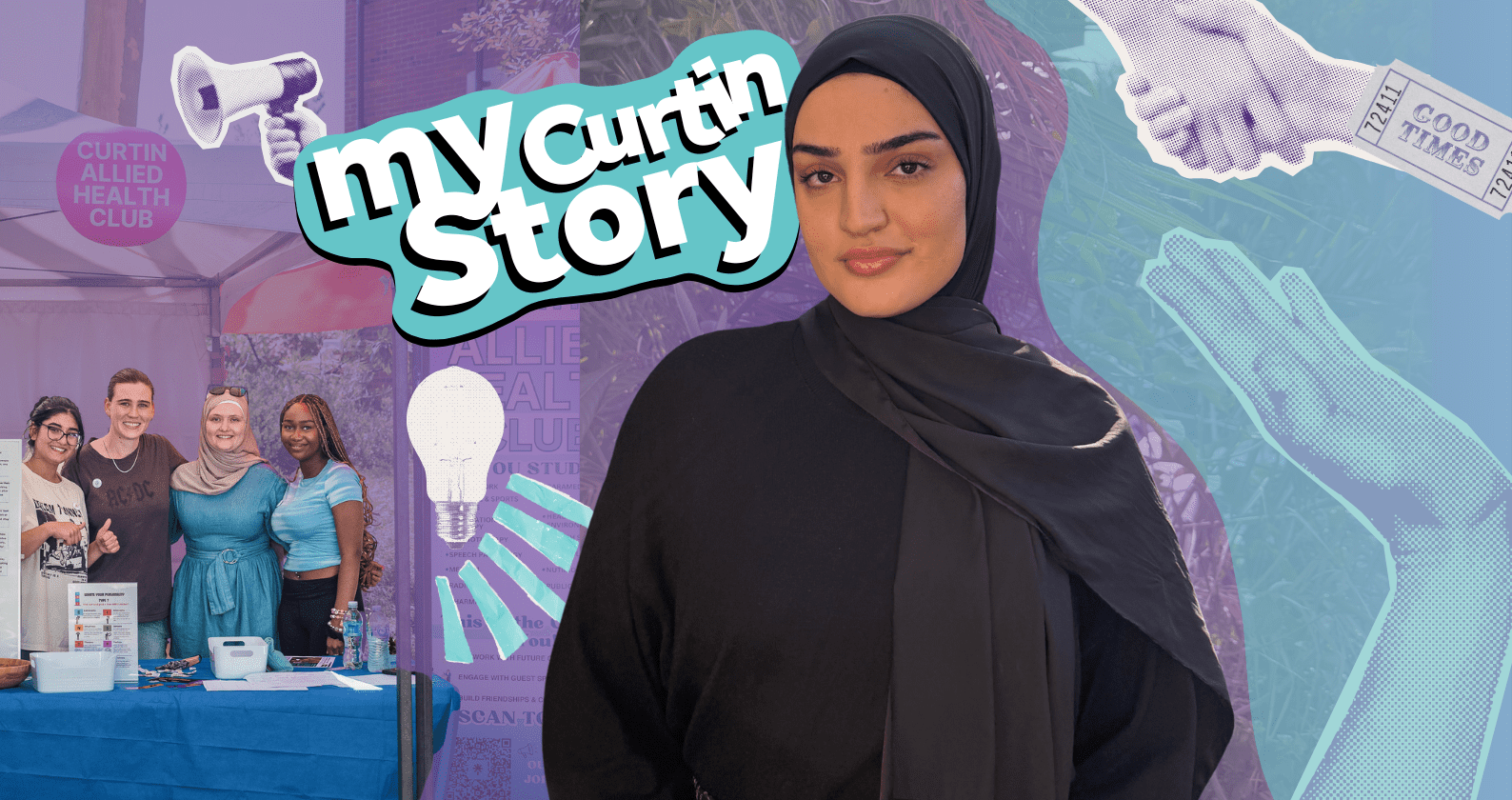Reading time: 5 minutes
If there isn’t a club you want to join, can you just start one?
When Zehrah was choosing a path, she considered journalism and law, roles that often step in at pivotal moments to tell stories or fight legal battles after a crisis has already occurred. But what called to her more deeply was the chance to be there at the very start of someone’s journey: to walk alongside them through the uncertainty, support their choices, and help create the conditions for healing and growth from the ground up. That’s what led her to social work.
Now partway through her four-year Bachelor of Social Work degree, Zehrah has found her place in a discipline that merges empathy with action. Her interest was first sparked by a high-achieving friend who could have studied medicine but chose social work instead. It challenged assumptions and raised a question that stuck: Why is social work so underestimated?
“People often ask if social work is just support work or if you even need a degree. You do. Social work is like the lawyers in healthcare; advocating, writing court reports, and navigating complex systems. But we do this not only in healthcare but across many areas: domestic violence, child protection, mental health, justice, and beyond. We shape policy, respond to crises, provide casework and counselling, and walk with people through their toughest moments. Social work can’t be boxed in; we’re everywhere change is needed.”
Zehrah didn’t enter uni straight from high school. After completing Year 12, she took a gap semester to reflect and find her direction. During that break, she became heavily involved in her local community; co-organising events, doing advocacy work, and exploring her core values. Reflecting on this, Zehrah realised her natural draw to this kind of work aligned with social work principles.
She enrolled through the UniReady program, eventually starting her degree with a strong sense of purpose.
“Social work brings together philosophy, law, social policy, psychology, and lived experience. It’s critical thinking with humanity,” she says. “One day I hope people recognise just how complex and valuable it really is.”
But even with a strong sense of purpose, something was missing. Zehrah noticed that while other disciplines had built-in community and connection, allied health, and especially social work, often felt siloed and overlooked.
“I remember countless times someone asked, ‘Wait, what’s social work?’ And I didn’t even know what an OT was, even though we walked past each other every day in the same building,” Zehrah recalls. “But these are the people I’ll be working with in future multidisciplinary teams. Allied health is collaborative by nature. So why weren’t we building those connections now and getting to know my future co-workers?”
So, she created a space to do just that.
In 2024, the club was launched and quickly gained traction, with more than 100 students signing up on 2025 O-Day. For Zehrah, the most rewarding part hasn’t been the committee structure itself, but the relationships she’s built with organisations that are just as committed to change as she is. Knowing she’s contributing, however big or small; to a more equitable, inclusive healthcare system gives her a sense of purpose and momentum that keeps her going.
Alongside her leadership role, Zehrah’s favourite part of her degree is hearing directly from people with lived experience. These guest speakers, who generously share their own stories in class, offer insights that go far beyond what textbooks can teach. This inspired one of the club’s aims: to be a space where future health professionals can learn and engage with the real, complex challenges they’ll face in practice. In just a few years, it will be our generation carrying this countries society’s care systems.
“I want to help drive meaningful change, not just in how we support individuals, but in how empowered future professionals feel when facing challenging situations. That also means making sure we understand each other’s roles across the allied health space, so we can work together effectively.”
Zehrah was especially drawn to the social policy unit because it showed her how to look beyond surface appearances. It taught her to trace the complex web of factors,; historical, social, political, that create the situations people face. Every time she engaged with a policy or real-world issue, A phrase from her favourite tutor, Mark Liddiard, stayed with her:
“Nothing is ever what it seems to be.”
This perspective highlights that social challenges are rarely isolated personal issues; rather, they are deeply connected to systemic failures, structural stigma, and environmental constraints. Social work, moves beyond to ‘fix’ individuals and instead demands a thorough examination of the policies, societal attitudes, and institutional barriers that contribute to their circumstances. Crucially, it recognises the full complexity of human experience within these broader systems; shifting the question from “What’s wrong with you?” to “What happened to you?”
“We’re not just supporting individuals; we’re challenging the systems that keep injustice alive. We walk alongside people, but we’re also working to rebuild the world they’re walking through.”
“With law or journalism, you’re often working for someone. But with social work, you’re working with them. You’re walking alongside them through their journey, not just writing about it or representing them in court.”
Zehrah’s journey into social work has been shaped by reflection, purpose, and a deep commitment to justice. As she looks ahead, she’s determined to keep building community, challenging stigma, and creating lasting change, one conversation at a time.



